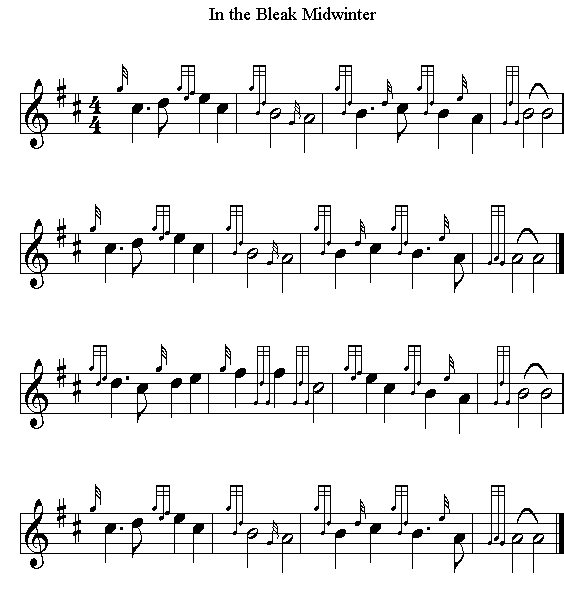 |
||||

Best viewed in
|
In the Bleak Midwinter "In the Bleak Midwinter" is based on a poem by the English poet Christina Rossetti. The poem was published, under the title "A Christmas Carol", in the January 1872 issue of Scribner's Monthly. Rossetti (December 5, 1830 –December 29, 1894) wrote a variety of romantic, devotional, and children's poems. She is famous for "Goblin Market" and "Remember". She wrote the words of "In the Bleak Midwinter", later set to music by Gustav Holst and by Harold Darke, and "Love Came Down at Christmas", also set by Harold Darke and by other composers. In verse one, Rossetti describes the physical circumstances of the Incarnation in Bethlehem. In verse two, Rossetti contrasts Christ's first and second coming. The third verse dwells on Christ's birth and describes the simple surroundings, in a humble stable and watched by beasts of burden. Rossetti achieves another contrast in the fourth verse, this time between the incorporeal angels attendant at Christ's birth with Mary's ability to render Jesus physical affection. The final verse shifts the description to a more introspective thought process. The text of this Christmas poem has been set to music many times. Two of the most famous settings were composed by Gustav Holst and Harold Edwin Darke in the early 20th century. Holst's setting, Cranham, used below, is a hymn tune setting suitable for congregational singing, since the poem is irregular in metre and any setting of it requires a skillful and adaptable tune. The hymn is titled after Cranham, Gloucestershire and was written for the English Hymnal of 1906.
Lyrics by Christina Rossetti
|
|||
